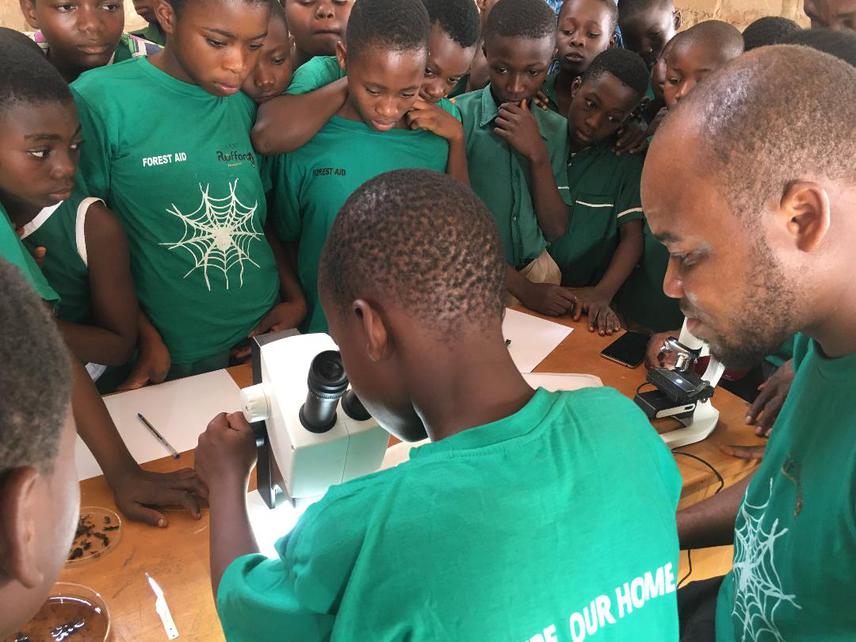Frederick Gyasi Damptey
Other projects
27 Aug 2019
Arthropod Colonization of a Restored Post-Mining Site in a Community Forest; the Use of Citizen Science in Diversity Assessment and Conservation
24 May 2023
Multi-Taxon Biodiversity Survey of Threatened Ecosystems Along a Climatic Gradient: Educational and Citizen Science Approaches in Biodiversity Conservation
Urban green spaces are ecosystems of significance in enhancing quality of life through their supply of essential services (e.g., biodiversity, spiritual connections and climate regulation). Using citizen science approach (school children and community members), we aim to assess (using proxies) the potential services of urban green spaces and their functions to biodiversity and society.

Five urban green spaces in the Sunyani metropoles of Ghana shall be selected for this assessment. Sunyani is located between Latitudes 7° 20'N and 7°05'N and Longitudes 2°30'W and 2°10'W and is characterized by a tropical humid climate with two seasons (dry and rainy). Most green spaces in the metropoles are characterized by grasses, lower structure vegetation or a mixture of both indigenous (e.g., Khaya anthotheca, Ceiba pentandra, Triplochiton scleroxylon etc.) and exotic (e.g., Senna siamea, Cedrela odorata, Tectona grandis etc.) tree species which were planted to serve as food, fodder, avenue trees, providing shade, controlling erosion or as ornamental trees. For each urban green space, eight plots with sizes 20 x 20 m will be demarcated for further assessment. All trees and other vegetation types with each plot shall be inventoried and classified into providers of tree-related ecosystem services.
Participants for this project shall include school children (from the various community schools) and volunteers (community members from the various communities) who will be trained to act as citizen scientists. Biodiversity and ecosystem services shall be assessed using proxies (estimates of a service). The focus of the assessment will be on the provisioning (food, fuelwood, fodder, plant derived medicine), regulating (climate, pest, disease), supporting (soil formation, nutrient cycling), and cultural (aesthetic, spiritual, recreational, educational) ecosystem services (MEA, 2005).
The output of this research shall be an impartation of conservation knowledge and empathy for nature, stewardship among project participants (citizen scientists), identification of ecosystem services hotspots, their threats, and solutions (revegetation) for areas with limited services. The data (biological and social) obtained from this research shall be used to formulate policies for the management of urban green spaces.